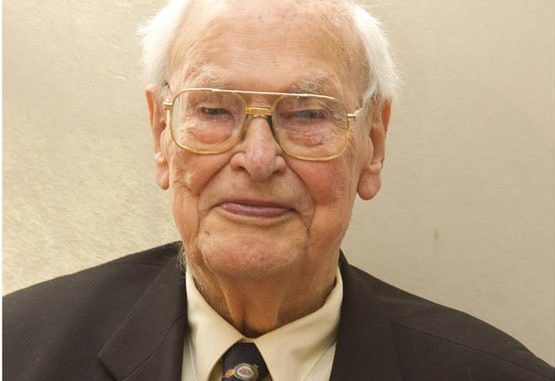
JOHN “Jo “OLIVER LANCASTER – RAF Pilot, Testpilot, DFC
John Oliver Lancaster DFC was introduced to me by Patricia Glensor from New Zealand. A name like “Lancaster” might place an undue burden on a youngster during WWII – in Lancaster’s case however it could not have been more appropriate as his aviation legacy spans over 11,000 hours in 144 different aircraft. It was not all smooth sailing as the 18 year old recruit was initially expelled from the RAF Reserve in 1938 for “low aerobatics”. He then joined the army, but in a 12 Aug 2018 telephone conversation, he told me he wanted to leave after an interview with a rude officer. A friend who was also a naval recruiting officer got him transferred to the Royal Navy, providing him with 4 shillings for the train ride. He said he was later asked to return the four shillings.
The Navy attachment was short lived and Lancaster was readmitted to the RAF. He would complete 54 operations with RAF Bomber Command’s 40 and 12 Squadrons and participated in the ‘Thousand Bomber Raids’ in 1942. In between postings, he served as a trainer with 28OTU (operational training unit). I asked him if it was a relief to be away from the front lines as an instructor. He said “not really” as the training aircraft employed Pegasus engines which were under powered and had difficulty maintaining altitude. Later were they issued with the better engineered Wellington aircraft. It was a reminder to me of the danger faced by trainee pilots and instructors.
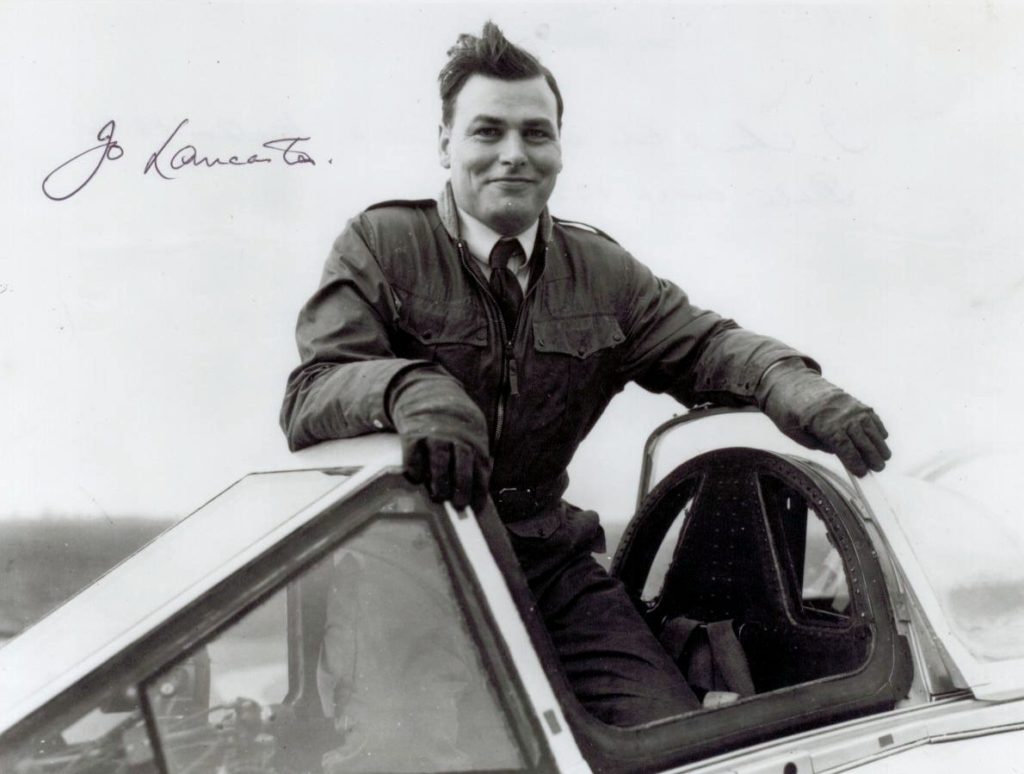
Following the war Lancaster transitioned to a career as a test pilot for various firms. On 30 May 1949, he ejected from the experimental Armstrong Whitworth A.W.52 flying wing in a prototype Martin-Baker Mk.1 seat, becoming the first person to eject from a British aircraft in an emergency. He later flew for Meridian Air Maps, carrying out aerial survey work in Belize, Central Africa, Portugal and Cyprus. Thinking he would say “Spitfire” I asked him what his favorite plane, he was definitive: “The Lancaster”.
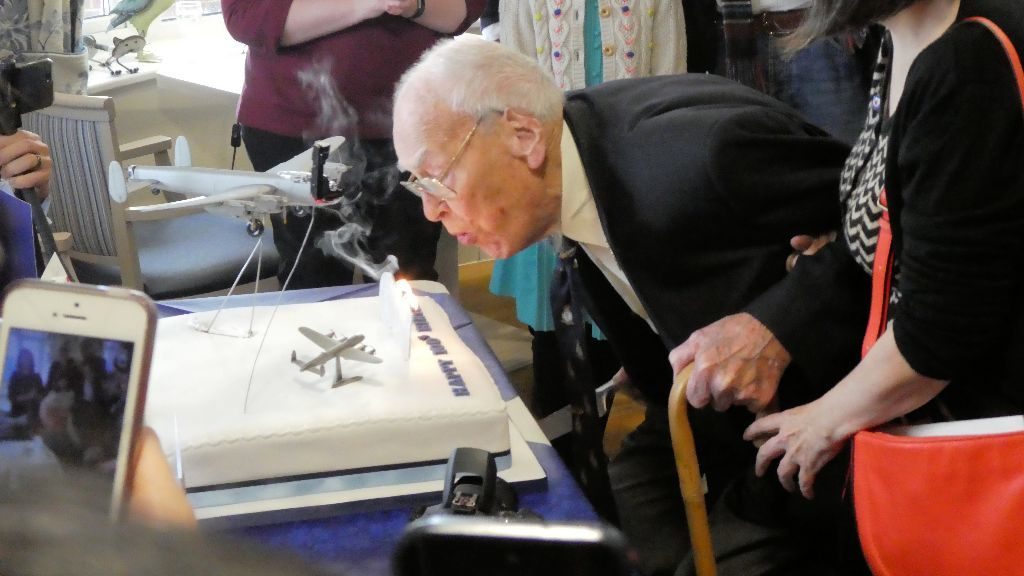
In addition to the phone interview, we exchanged several wonderful emails. His email address “Raiderthree” was his personal call-sign for his thirteen year test pilot tenure with Armstrong Whitworth Aircraft; 1949 to 1962. I was thrilled when he wrote to say he was “very willing to add my signature to your father’s log book…these things are very precious, or should be!”
Despite his advanced age he agreed, or as he put it “hauled in to do signing sessions” at a 3 day air show at Eastbourne in August 2018.
I asked him if he knew another renowned British pilot, Eric “Winkle” Brown to which he wrote
“I first encountered Winkle in 1943…post-war he wrote several very good books, including his autobiography “Wings on my Sleeve”. He came to my 75th birthday party at Shoreham (1994), and I met him briefly two or three times when he traveled around giving excellent talks, which he continued to do almost to the end. He was indeed a very remarkable character, and post-war was absolutely invaluable because he spoke German fluently. Sorry that this is not much help, but it is all that I have to offer.”
I assured him that I would never have known Winkle spoke fluent German and also marveled at the 70 year association of the two icons of flight; a tremendous wealth of aviation knowledge and experience vested in these two men. I’m no pilot but as I said to him “I dare say sir, many pilots would pay a dear price for a moment in the company of either of you.”
Jo Lancaster died 10 August 2019, aged 100. A remarkable life well lived.
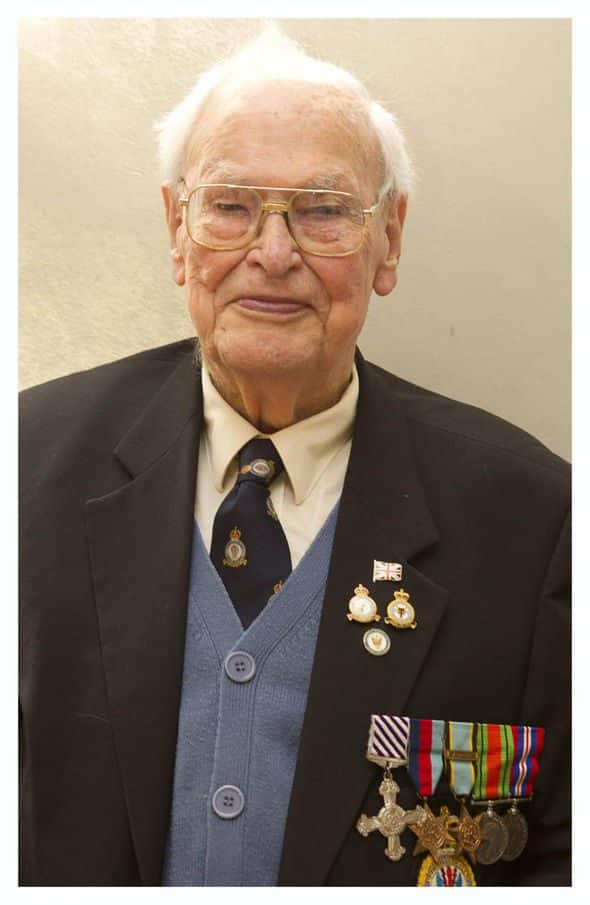


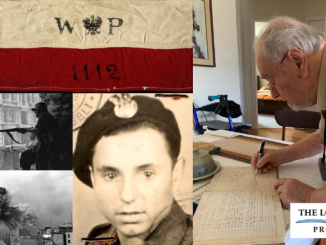
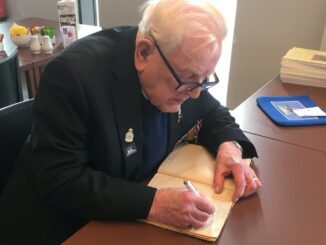
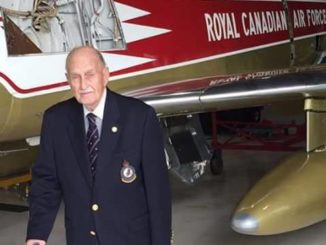
Be the first to comment